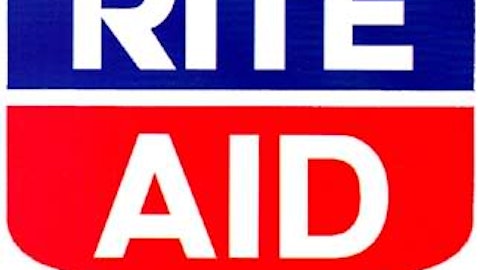It looks like the dividend-stock juggernaut may be starting to slow down, as yields on income vehicles begin to edge up again. After staying abnormally low for the last few years, the yield on the 10-year Treasury bond has increased by 80 basis points since April to its current rate of 2.57%. Income investors are starting to exit the lower-yielding stocks in favor of “safe” investment grade bonds, so look for some slowing in the sector.
However, research has shown that dividend-paying companies tend to outperform in both bull and bear markets, so there may not be a rush for the doors; however, it is likely that dividend investors will become a bit more choosy about their selections, especially among the lower-yielding companies.

If you’ve read any of my articles, you know that I am a huge dividend fan. I’ve been writing about dividend-paying companies for over a year, I’ve designed a ratings system to help me select the best companies, and I’ve built my Perfect Dividend Portfolio (PDP), featuring ten stocks that I believe will perform better than other dividend portfolios.
I look for a combination of excellent dividend-raising history, high current yield, and superior potential for earnings growth. Earnings are important, and I take into account the projected five-year earnings growth rate as well as the current P/E and the past twelve months’ share price increase.
In this article I will examine three retail companies, Wal-Mart Stores, Inc. (NYSE:WMT), Target Corporation (NYSE:TGT) and Walgreen Company (NYSE:WAG) and establish their qualifications in terms of a dividend growth portfolio.
Bad to employees, but good to investors
Wal-Mart Stores, Inc. (NYSE:WMT) is currently trading at $73 per share and yields 2.6%. The company has raised its dividend every year for 39 years; its 5-year Dividend Growth Rate (DGR) is an impressive 14.6%, and its payout ratio is a conservative 33%, which leaves plenty of cash for further investments in the company as well as returning some to shareholders.
In addition to its dividend, Wal-Mart Stores, Inc. (NYSE:WMT) has been rewarding its shareholders over the past ten years through an aggressive share repurchase program. The number of common shares outstanding has decreased from 4.5 billion in 2002 to just 3.3 billion today.
The company announced its 2Q earnings before the bell on August 15, and the results were mixed. The company met the 2Q EPS estimate of $1.24 per share, but the worst news was that forward guidance for the rest of the year was lowered significantly. Expectations now are for growth in the 2 to 3% range, half of what had been forecast prior to this earnings release.
I like Wal-Mart Stores, Inc. (NYSE:WMT)’s Dividend Growth Rate, which sees the dividend doubling every 5 years, as well as its 37-year history of raising dividends and its low payout ratio. The 5-year projected earnings growth rate of 9% is right in line with the earnings growth projections of the S&P 500 in general. However, at 2.4%, I find that Wal-Mart Stores, Inc. (NYSE:WMT) does not quite yield enough to make it into my portfolio. I’d like to see Wal-Mart Stores, Inc. (NYSE:WMT) increase its dividend to about 3%, and pay out a bit more of its earnings.
Dividend doubling every three years
Target Corporation (NYSE:TGT) is currently trading at $63 and yields 2.7%; the company has been raising dividends consistently for 46 years, and has a 5-year DGR of 25.2%. Its 5-year projected earnings growth rate is 10.8%, and its P/E is 16.6, and its payout ratio is 32%.
Target Corporation (NYSE:TGT)’s last dividend increase was in June, when the company announced a 19% increase for its 183rd consecutive distribution. The 5-year DGR of 25% means the dividend has doubled roughly every 3 years.
Target Corporation (NYSE:TGT) announced its 2Q earnings on Aug. 20, and reported EPS up 6% versus the same quarter last year. The management team stated that they project the remainder of the year to fall into the low end of previous guidance, based on expectations of continued soft retail sales from consumers.
Target Corporation (NYSE:TGT) also continues to repurchase its own shares, with a total of 21.9 million shares, or $1.5 billion year-to-date. This is approximately triple the total value of dividends distributed, and adds significantly to the shareholder value.
If the company reaches its stated goal of $8 per share by 2017, that means the earnings will have roughly doubled within 4 years, which seems reasonable given a combination of share repurchases, sales and square footage growth, and the opening of new stores in Canada. The company is also working to overcome the impact of online retailers such as Amazon, Walmart.com, Best Buy and ToysRUs, by offering price matching.




